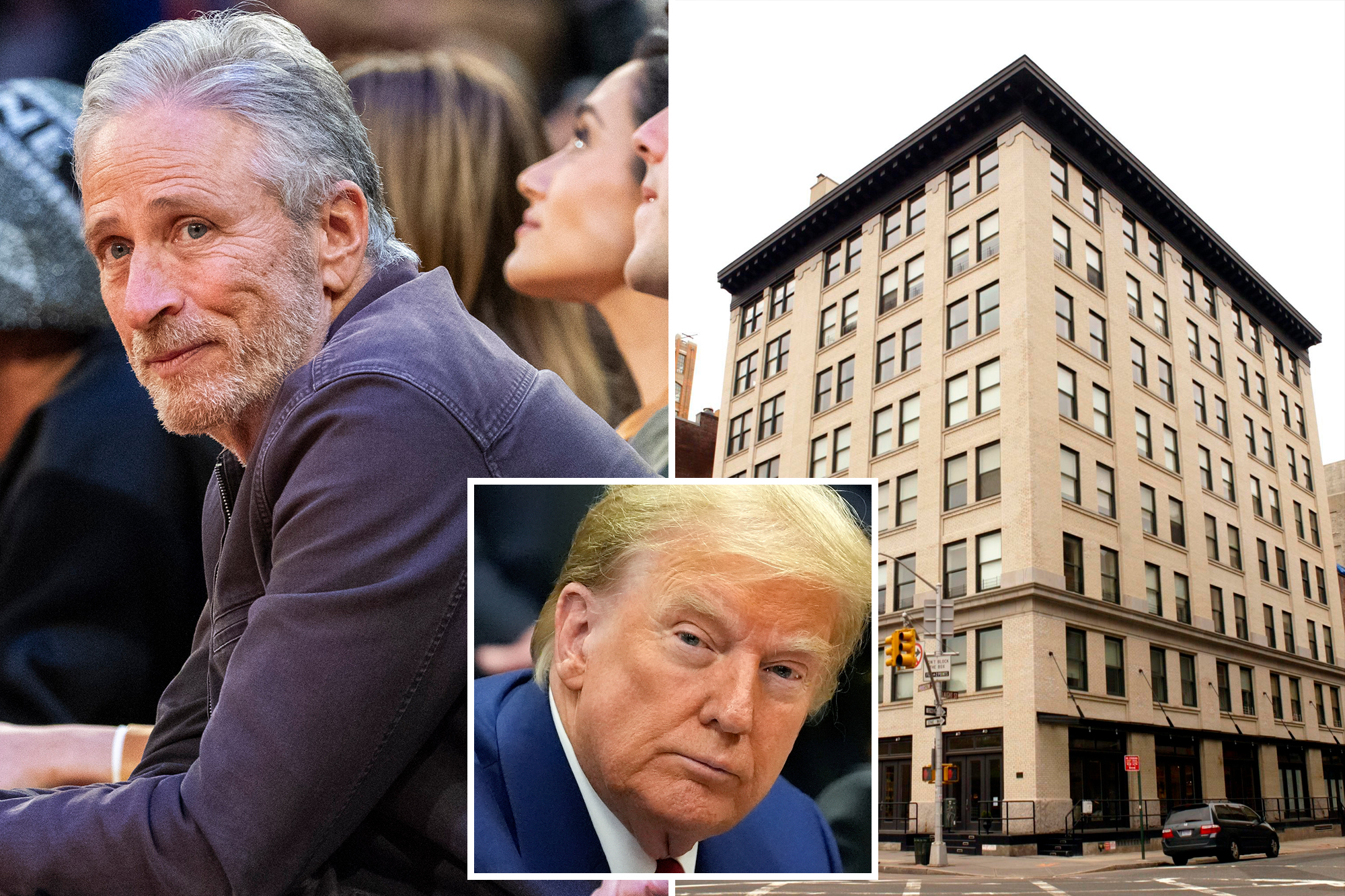
Jon Stewart is facing online backlash after the comedian opined on air this week that Donald Trump’s civil real estate case overvaluing his properties was “not victimless” — when it turns out the price of a previous home sale finds Stewart doing the exact same thing, The Post has learned.
On Monday night, Stewart, 61, unpacked Trump’s $454 million appeal bond, calling out experts framing the former president’s New York civil case as not causing direct harm to any one individual.
“The Daily Show” host rolled a clip of CNN’s Laura Coates interviewing “Shark Tank” star Kevin O’Leary, who commented that the ruling didn’t “go over well” with the real estate industry that was now fretting over the possibility of being the next target.
Coates responds to O’Leary by highlighting Trump was found liable for falsifying business records in the second degree, issuing false financial statements, insurance fraud and conspiracy, all due to asset inflation.
“Everything that you just listed off is done by every real estate developer everywhere on Earth in every city. This has never been prosecuted,” O’Leary replied.
In response, Stewart asked: “How is he not this mad about overvaluations in the real world?”
“Because they are not victimless crimes,” he said.
To further his point, Stewart argued that “money isn’t infinite. A loan that goes to the liar doesn’t go to someone who’s giving a more honest evaluation. So the system becomes incentivized for corruption.”
Stewart also contended that failing to declare a higher market value on a property, while paying taxes based on a lower assessed value, constitutes fraudulent behavior.
“The Attorney General of New York knew that Trump’s property values were inflated because when it came time to pay taxes, Trump undervalued the very same properties,” Stewart added. “It was all part of a very specific real estate practice known as lying.”
But it didn’t take long for internet sleuths to look into Stewart’s own property history, where it shows an overvaluation of his New York City penthouse by a staggering 829%, records confirmed by The Post show.
In 2014, Stewart sold his 6,280-square-foot Tribeca duplex to financier Parag Pande for $17.5 million. The property’s asking price at that time is not available in listing records.
But according to 2013-2014 assessor records obtained by The Post, the property was market-valued at only $1.882 million. The actual assessor valuation was even lower, at $847,174.
Records also show that Stewart paid significantly lower property taxes, which were calculated based on that market value price — precisely what he called out Trump for doing in his Monday monologue.
Pande, who purchased the penthouse from Stewart, then resold the property at a nearly 26% loss than what he initially paid for it, according to the Real Deal — at just over $13 million — in 2021.
Timothy Pool, a political commentator, known for more right-leaning views, alleged on X that Stewart was being a hypocrite.
“Did @jonstewart commit fraud when he sold his penthouse for $17.5M? NY listed its market value at $1.8M an AV at around 800k… Who did he [sic] defraud?? I am SHOCKED,” he wrote.
“This is right in [Letitia James’] jurisdiction! I look forward to the grand jury indictment,” a user quipped in response to the tweet.
Stewart’s reps did not respond to The Post’s request for comment.
Meanwhile, the New York assessor valuation on Stewart’s former penthouse is the exact same citation method and metric that New York Attorney General Letitia James used to value Trump’s properties, and then sued him for inflating his assets.
This includes Trump’s Mar-a-Lago estate in Palm Beach, known as his main residence, which was assessed at only $18 million at the time. Real estate brokers had valued the property at 50 times more than that amount.
Same for his private 200-acre New York family estate in Westchester, which was assessed between $30 million to $56 million.
Trump had valued the property, known as Seven Springs, at $261 million.
Last month, Manhattan Supreme Court Justice Arthur Engoron ordered Trump to pay $355 million — and temporarily banned him from doing business in the state — relying heavily on the assessed valuations of the properties to determine the ruling.
The $454 million bond to appeal the ruling marks the highest bond ever recorded in United States history against a single individual.














